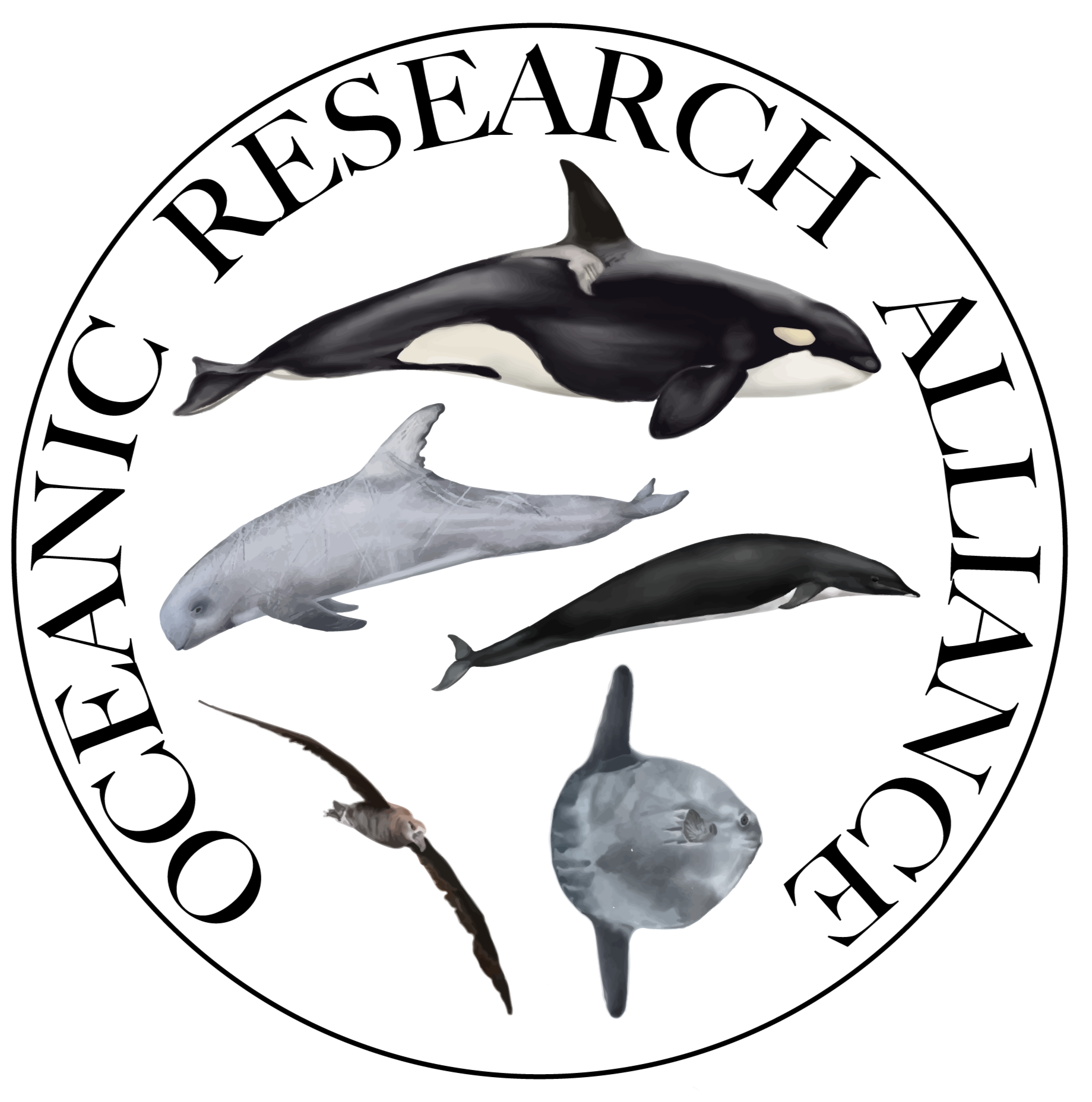
About the Oceanic Research Alliance
ORA is a California registered non-profit and tax-exempt 501(c)(3). We are a team of scientists and researchers dedicated to protecting marine life in the vibrant waters of the California Current Ecosystem. Through objective, innovative research, we aim to inform and drive effective conservation actions.

California Current Ecosystem
The California Current is a powerful ocean system that flows southward along the West Coast, carrying cool, nutrient-rich waters within the upper 500 meters of the ocean.
This current is part of a larger, dynamic circulation pattern that also includes a weaker northward undercurrent along the continental slope and the seasonal Davidson Current, which brings warmer temperate waters north during the winter.
Offshore, the California Current meets a broad oceanic front of nutrient-poor waters roughly 1000 kilometers into the Pacific. Along the coast, seasonal winds from March to August drive upwelling, bringing deep, nutrient-rich waters to the surface.
Together, these processes create one of the most biologically productive marine ecosystems in the world, supporting an exceptional diversity of marine life.

Oceana Acres Research Station
Perched on the rocky headlands of Otter Point with sweeping views across Juan de Fuca Strait, the Oceana Acres Research Station is Oceanic Research Alliance’s coastal field hub. From this vantage, we monitor marine mammals, seabirds, and dynamic ocean processes in one of the most dynamic and ecological and biodiverse areas along the Pacific coast —linking rigorous science with community stewardship.
The Oceana Acres Research Station is a shore-based field facility located in Otter Point, British Columbia, overlooking the shipping lanes, tide rips, and kelp forests of the Juan de Fuca Strait. From this vantage, the station supports year-round wildlife observation, coastal ecology studies, and small-vessel research operations coordinated by the Oceanic Research Alliance (ORA) and its partners.
Positioned along a critical marine corridor, Oceana Acres provides rare, land-based sightlines across migration and foraging routes used by transient (mammal-eating) and resident (fish-eating) killer whales, as well as gray whales, humpback whales, porpoises, and pinnipeds. Despite its rugged coastal setting, the station remains within driving distance of sheltered launch points in Sooke and Port Renfrew, enabling rapid deployment for vessel-based surveys when conditions allow.
Partners
Description







